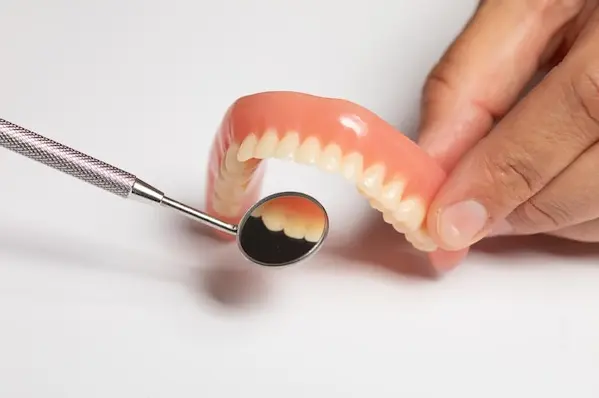Dentures can restore a patient’s smile and basic function after tooth loss. They are usually secured with a combination of suction and gritty adhesive.
During the nineteenth century, manufacturers produced celluloid and vulcanite dentures in their own laboratories. Spectral analysis of the NMD and NMAH’s 21 celluloid dentures (identified as such with labels or their spectral characteristics) suggests that formulation and conservation conditions impact denture stability, vermilion degradation and camphor content.

Benefits
Using advanced techniques, your denture specialist will create an exact model of your jaw structure. This will allow them to place the prosthetic in the right position for a natural, comfortable fit. You can expect a complete transformation of your smile, including improved dental health and confidence.
If you are missing most or all of your teeth, you may be a good candidate for dentures. Dentures can restore both function and aesthetics to your mouth, while also reducing the risk of complications from underlying oral health issues like bone loss.
The denture process can be time-consuming and will require several appointments. Before you begin, verify your dental insurance coverage and explore financing options. Most offices will accept flexible payment plans and interest-free loans. They may also offer a comprehensive care plan, which includes regular checkups and maintenance. These appointments are important to prevent underlying dental problems and to keep your dentures in top condition. Schedule your consultation today to learn more about your treatment options.
Preparation
For your dentures to fit comfortably and securely, a series of steps must take place. First, the oral and maxillofacial surgeon must determine if your bones and gums are healthy enough for the procedure. This is accomplished by taking an initial impression of the maxillary and mandibular ridges. This is done with standard impression materials such as alginate or polyvinyl siloxane.
Once the impression is taken, it must be fabricated into a mold. The fabricated mold is then filled with denture base material and a stone investment. Depending on the type of denture base material, it may be heated to a molten state for a quick and accurate pouring process or left in a liquid form that requires an extended time before it is poured.
When the dentures are ready, your denture dentist Bowling Green KY will assess their fit. This involves evaluating bite alignment, making speech adjustments and checking for sore spots. The dentist will also assess whether a patient can successfully chew with the new dentures and if they stay in place during mastication. If necessary, a relining or rebase can be performed to improve the comfort and stability of the dentures. Regular cleaning using specialized products is also important for optimal denture health and longevity. This will prevent plaque buildup and gum irritation.
Treatment
Dentures are an effective way to restore full oral function and a youthful appearance. However, cost can be a concern for many patients. Fortunately, there are a variety of options for financing your dental care.
Depending on your needs, your dentist may recommend different types of dentures. Economy dentures, for example, are budget-friendly and can be used to replace a single arch of missing teeth. They typically feature basic acrylic materials and stock teeth designs, and they may not last as long as higher-end alternatives.
Your denture dentist Bowling Green KY will provide you with a treatment plan and a cost overview before the beginning of your treatment. This information will help you make an informed decision about the type of denture that best fits your situation. It is also important to understand that insurance companies cover between 15% and 50% of the total charge for dentures.
If you are not covered by insurance, flexible payment plans are available that allow you to spread out your costs with manageable payments spanning 3 to 12 months. These payment options allow you to pursue the restoration of your smile without putting yourself or your family at financial risk. Many dental offices and third-party providers offer these plans, which can be paid using your health savings or flexible spending account.




